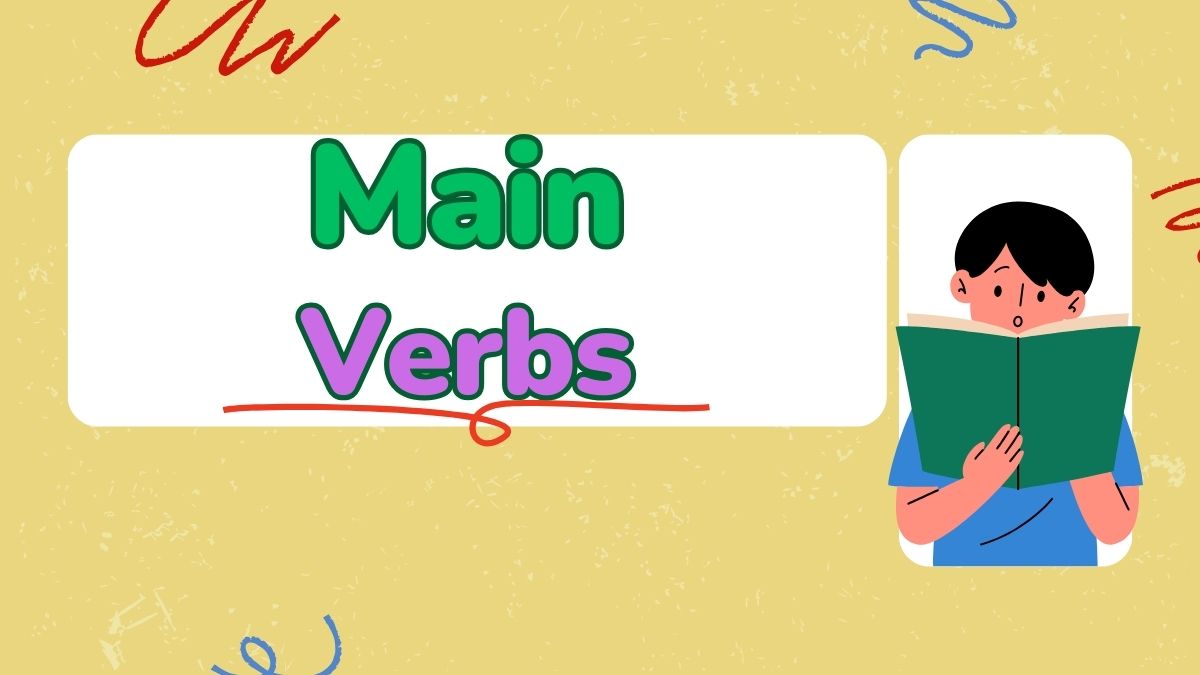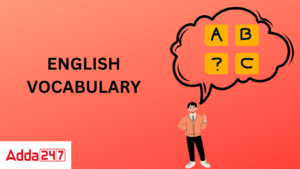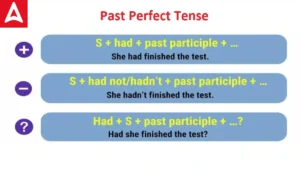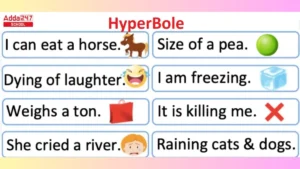The Main verbs, as the name suggests are the primary verbs in English language. These verbs are the ones that denote the action of the subjects. The main verb is also known as the principal verb or the lexical verb. The term main verb refers to the important verb in the sentence, the one that generally shows the state of being or action of the subject. Check all the important details regarding the main verb in this article including its definition, types and uses.
Main Verbs
A verb is a part of speech that indicates an action. There are two main categories of verbs: main verbs and helping verbs. Different types of verbs also exist. On the other hand, the main verbs are the ones that directly explain an action that the specific subject is performing. These are the primary verbs in a sentence that convey the primary message. The main verb can be used alone or can be used in combination with the helping verbs (also called auxiliary verbs).
What is a Main Verb?
The primary verb in a sentence is referred to as a main verb. It indicates the primary subject’s action within a specific situation. Each verb indicates an action taking place, regardless of a person’s situation or possession. Each sentence contains a main verb, a helping verb, or both. The verb is crucial in defining the subject as it indicates the action, state, or occurrence. A verb is a word that shows us the action of the sentence’s subject.
Main Verbs Definition
Check the definition of the main verb as per leading dictionaries of English Grammar below.
The Cambridge Dictionary defines a main verb as “the verb that contains the meaning, compared with any auxiliary verbs that go with it in a clause.”
According to the Collins Dictionary, a main verb is “a word used as the final verb in a verb phrase, expressing the lexical meaning of the verb phrase, as ‘drink’ in ‘I don’t drink’, ‘going’ in ‘I am going’, or ‘spoken’ in ‘We have spoken’.”
Examples or Main Verbs
Candidates can check the examples of more commonly used main verb below to get an idea about them.
- Take
- Lend
- Request
- Apologise
- Teach
- Grab
- Gulp
- Swallow
- Digest
- Drink
- Do
- Make
- Try
- Pause
- Copy
- Invent
- Discover
- Chat
- Write
- Speak
- Read
- Talk
- Walk
- Sit
- Jump
- Swim
- Leave
- Am
- Is
- Are
- Have
- Has
Types of Main Verb
The main verbs are primarily or 3 types.
- Transitive and Intransitive Verb
- Regular and Irregular Verb
- Finite and Infinite Verb
Check the explanation of all these verbs below.
Transitive Verb : Transitive verbs have objects and incorporate the recipient of the action in the sentence.
Intransitive Verb : Intransitive verbs are verbs that do not require a direct object.
Regular Verb : A regular verb is a term that follows the standard format for forming its past simple and past participle.
Irregular Verb : Irregular verbs are verbs that do not adhere to the usual patterns for tense and past participle forms.
Finite Verb : The primary verb in a sentence is a finite verb. The beginning of the word is what drives the rest of the statement.
Infinite Verb : An infinite verb remains constant regardless of the subject it is linked to.
Main Verb Functions
Main verbs are the most frequently used type of verb in the English language. In addition to vocabulary words, they also have authentic verbs that can stand alone in a sentence. So, it is important to acknowledge that main verbs often require a lexical item in both inquiries and expressions. The main verb is completed by the intense action word of the specific topic. Frequently these actions are incorporated into a main action word. Major verbs are the powerful action words found in a sentence.
How to Use Main Verbs in a Sentence
Regular verbs and irregular verbs are two categories that main verbs can be divided into. The main verb type determines how the verb is used. Regular verbs adhere to consistent rules when they are conjugated to create a specific tense form. In contrast, irregular verbs require specific conjugations for creating past and past participle forms. The main verb’s function to depict various tenses relies on the type of verb being used.
Let us understand the usage of main verbs by looking at the examples given below.
- The little boy loved the cake.
- My mom knows to operate the computer.
- I am a tennis player.
- Tina asked Sheela to work on the pending documents.
- She is going to the grocery store.
Use of Main Verbs as Linking Verbs
It was previously stated that main verbs do not always indicate action. At times, they just convey the condition of a subject. In these instances, the main verbs are known as linking verbs because they connect the subject to details about its existence (referred to as a subject complement). Take a look at the example provided below to understand the use of a main verb as a linking verb:
As a toddler, Susan was adorable.
It is important to note that the main verb “was” does not describe Susan’s actions, but instead her state of being, which is adorable.
Jennifer is a nurse at the local hospital.
In the above example, the primary verb “is” connects Jennifer, the subject, to the complement “a nurse.”
You can think of a linking verb like an equal sign to help understand its function. If you can replace the main verb with an equal sign in a sentence and it still works, then the main verb is a linking verb.
Difference Between Main Verbs and Helping Verbs
The primary contrast between main verbs and helping verbs lies in the fact that the main verb serves as the key action in a sentence carried out by the subject, while the helping verb works in conjunction with the main verb to indicate the verb’s tense. Let’s examine the following examples for better comprehension.
- Gavin will be meeting us at the airport. (The verb ‘will be’ is the helping verb and the verb ‘meeting’ acts as the main verb that represents a progressive action of Gavin meeting us at the airport in the future.)
- She has come all the way from Chicago to profess her love for him. (The verb ‘has’ acts as the helping verb and ‘come’ acts as the main verb, which indicates the action of her coming from Chicago in the recent past to profess her love for him.)
- Arjun is a salesman. (The verb ‘is’ acts as the main verb here that represents the action of Arjun being a salesman.)
- He likes pizzas and burgers more than anything else. (The verb ‘likes’ is the main verb in the sentence, and it signifies the action of him liking pizzas and burgers more than anything else.
- The peacock flew from one tree to another. (The verb ‘flew’ acts as the main verb in this sentence, and it represents the action of the peacock flying from one tree to another in the past.)
How to Identify Main Verbs in a Sentence
Analyzing the main activity or state of change of an individual can help us identify the main verb within a sentence. In order to identify the main verb, you must first comprehend the entire sentence and use that understanding to decipher the various components that make up its meaning.
The primary action is found in the predicate and communicates the main activity or state of the statement’s focus. The main verb could stand alone or be enhanced by additional phrases to provide emphasis and depth. Check the examples given below to understand this point.
- We are going to Agra.
- He could eat all day.
- They sang beautifully in the party.
- I lived here since my childhood.
- He is begging for food and water.
- India is developing rapidly.
- The kite was flying high.
- I am writing a story on animals.
- It rains a lot in Meghalaya.
- She plays hockey in school.
Transitive and Intransitive Main Verbs
Transitive or intransitive are the two types of main verbs. Transitive verbs require a direct object, whereas intransitive verbs do not have a direct object. Direct objects are necessary to receive the action of transitive verbs. Intransitive verbs can convey action without a direct object, allowing a sentence to end without feeling unfinished. Check the following examples from these main verbs.
Transitive Verbs:
- Jenny fed the cat.
- Fred loves cake.
- They attended the party.
Intransitive Verbs:
- The wind blew.
- The keys disappeared.
- John laughed.
Main Verbs Exercise
Solve the exercise given below to check your understanding about the main verbs. The answers to the questions asked in the following exercise is given below. Identify the main verbs in the following sentences
- She started screaming when she saw a cockroach.
- Can I ask you a question?
- I have called for a meeting of all the previous employees today evening.
- Sheena had visited her mother, who was hospitalised, last week.
- Raam sent me a gift for my birthday.
- They are trapped inside a vault.
- Tharun has a brother.
- It is Chirrag’s birthday today.
- The mom ran with her children to safety.
- When can you deliver the package?
Answers
The answers for the above questions have been given below in the same sequence as the questions. The main verbs have been highlighted in bold. Candidates are advised to first solve the exercise on their own and then match their answers with the standard solutions given below. In this way, they will be better able to understand the concept.
- She started screaming when she saw a cockroach.
- Can I ask you a question?
- I have called for a meeting of all the previous employees today evening.
- Sheena had visited her mother, who was hospitalised, last week.
- Raam sent me a gift for my birthday.
- They are trapped inside a vault.
- Tharun has a brother.
- It is Chirrag’s birthday today.
- The mom ran with her children to safety.
- When can you deliver the package?
| Related Post | |
| Verb Forms | Transitive and Intransitive Verbs |
| Irregular Verbs | Modal Verbs |









 Vocabulary Words with Meaning and Senten...
Vocabulary Words with Meaning and Senten...
 Past Perfect Tense: Definition, Formula,...
Past Perfect Tense: Definition, Formula,...
 Hyperbole- Explanation, Definition, Exam...
Hyperbole- Explanation, Definition, Exam...














